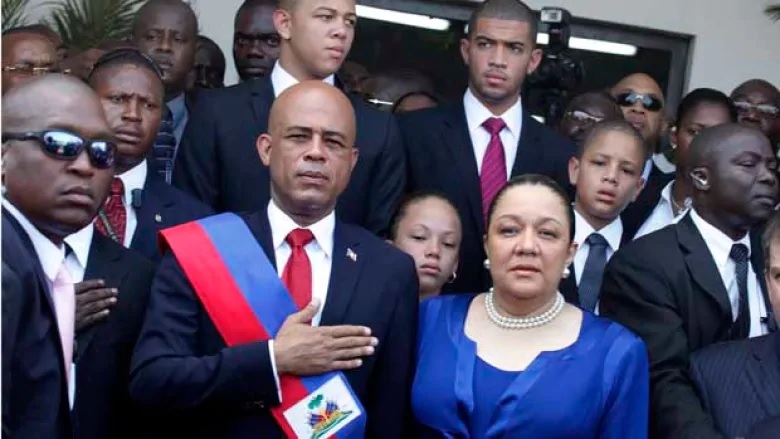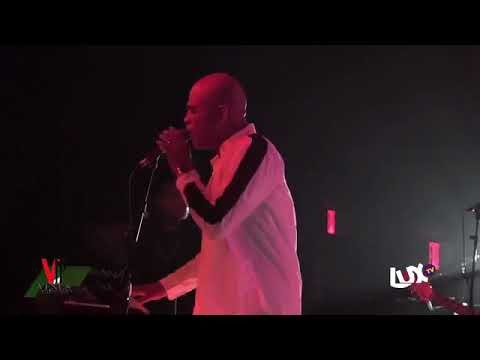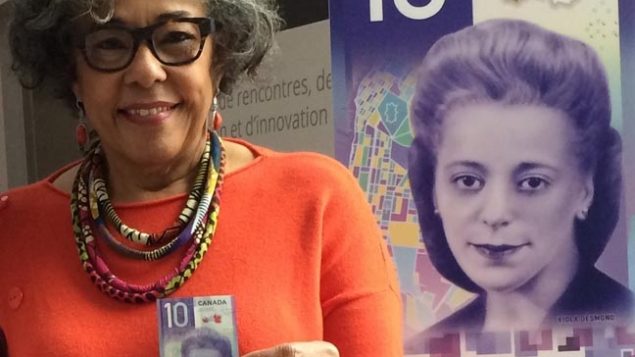A coalition of seven Montreal organizations is pressing Canadian politicians to keep former Haitian president Michel Martelly from appearing on stage in Montreal this Friday.
The coalition, comprised of mainly Haitian-Canadians, says Martelly, who sings under the stage name of Sweet Micky, is a misogynist whose songs promote violence against women.

Michel Martelly stands with his wife, Sophia, and their children as the Haitian national anthem is played in Port-au-Prince on Saturday during his inauguration on May 14, 2011. (Brennan Linsley/Associated Press)
The coalition has written letters to politicians, including Prime Minister Justin Trudeau and Montreal Mayor Valerie Plante, asking them to do something similar to what former Montreal mayor Denis Coderre did in 2016 when he made it clear that controversial French comedian Dieudonne was not welcome in Montreal, a city whose Haitian population numbers about 132,000.
Coalition members say there may well be protests if Martelly goes forward with his show, a threat that promoter Edward Osias, the president of Bass-Mint Management Group, is taking in stride.

A coaltion of mainly Haitian-Montrealers says it doesn’t Martelly’s alter ego, Sweet Micky (above), performing this Friday in Montreal. They are appealing to Canadian politicians to stop him. (YouTube)
“He’s a provocateur,” Osias told Morgan Lowrie of Canadian Press.
“He’ll wear a skirt. He’ll say stupid things. He’ll make jokes. He’s an artist who provokes controversy.”

Haiti’s former president Michel Martelli is seen in Haiti in 2016. (Ricardo Arduengo/The Associated Press)
Members of the coalition see it another way.
“I’m not particularly in favour of censorship, but hateful speech that calls for violence towards a group of people–half the population–I feel is not acceptable,” Marie Dimanche, founder of the support group Solidarite Quebec-Haiti, told CP.
While serving as Haiti’s president, Martelli was not adverse to using his musical skills to go after opponents, including a journalist in Feb. 2016.

Long-time human rights activist Marjorie Villefranche who is the director-general of Maison d’Haiti, is seen during a Radio-Canada interview in 2014. (Photo : Radio-Canada/Sarah Champagne)
Whether or not their appeal falls on deaf ears, members of the coalition, who include the community organization Maison d’Haiti, are taking a wait-and-see approach as they continue to try to make their case.
I spoke by phone with Marjorie Villefranche, a long-time human rights activist, who is the director-general of Maison d’Haiti, about what confrontation.
ListenWith files from CP, CBC, Postmedia







For reasons beyond our control, and for an undetermined period of time, our comment section is now closed. However, our social networks remain open to your contributions.